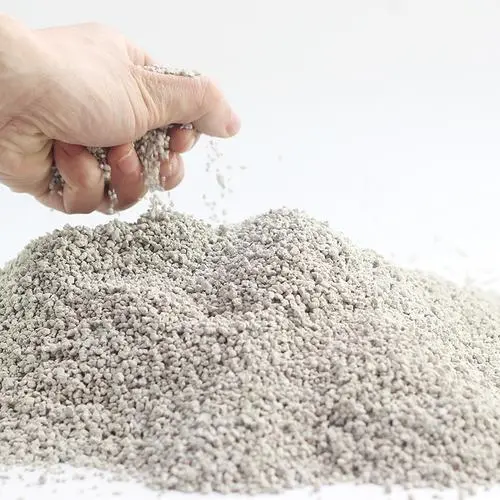
vermiculite for plants
The Benefits of Using Vermiculite for Plants
Vermiculite is an extraordinary mineral that has garnered significant attention in the gardening and horticulture world due to its myriad benefits. It is a natural, lightweight, and sterile material created from the expansion of volcanic rock under high heat, resulting in a unique, mica-like structure. Its properties make it an excellent addition to potting mixes, seed starting, and many other horticultural applications. This article delves into the advantages of incorporating vermiculite in your gardening practices, focusing on how it can enhance plant growth and health.
Improved Aeration and Drainage
One of the primary benefits of vermiculite is its ability to improve soil aeration and drainage. When added to potting soil, vermiculite creates air pockets that allow oxygen to permeate the root zone effectively. This aeration is essential for root health, as it prevents the roots from becoming waterlogged, which can lead to root rot—a common issue in overwatered plants. By ensuring that your soil has adequate drainage, you promote a well-balanced environment that supports healthy plant growth.
Water Retention
Vermiculite is also known for its remarkable capacity to retain moisture. It can absorb and hold several times its weight in water, which can be particularly beneficial in maintaining consistent moisture levels in the soil. This property makes vermiculite an excellent component in soil mixes for plants that require steady moisture, such as ferns and orchids. Its water-retaining capabilities help reduce the frequency of watering, making it an ideal choice for busy gardeners or those with a tendency to forget to water their plants.
Nutrient Retention and Availability
Vermiculite is not just a passive medium for growing plants; it actively contributes to nutrient retention as well. The mineral has a unique cation exchange capacity (CEC), which means it can hold onto positively charged ions of nutrients like calcium, potassium, and magnesium. This ability ensures that essential nutrients are available to plants for uptake, promoting robust growth. Furthermore, vermiculite is pH-neutral, making it suitable for a wide range of plants without altering the soil's acidity.
Seed Germination
vermiculite for plants

For those who love to start their plants from seeds, vermiculite is an excellent growing medium. Its fine texture provides a light, fluffy environment that facilitates seedling emergence. The moisture retention properties of vermiculite create an optimal scenario for seeds to germinate while minimizing the risk of soil compaction. Many gardeners mix vermiculite with other substrates for seed starting, as it helps maintain consistent moisture levels and provides a sterile environment to reduce the risk of disease.
Lightweight and Easy to Handle
Another appealing aspect of vermiculite is its lightweight nature. This property makes it easy to carry, mix, and work with, providing convenience for gardeners who may need to transport their soil mixes or plant containers. Unlike heavier soil amendments, vermiculite ensures that your potted plants remain manageable weight-wise while still providing exceptional growth conditions.
Eco-Friendly Option
Vermiculite is a sustainable choice for gardeners. It is a natural mineral that undergoes minimal processing, making it an eco-friendly additive to your gardening practices. When using vermiculite, you contribute to a reduced environmental impact compared to synthetic soil amendments, promoting a more organic approach to gardening.
Ideal for Various Gardening Applications
Vermiculite's versatility makes it suitable for numerous gardening applications. Whether you are growing indoor plants, vegetables, or flowers, vermiculite can enhance the quality of your soil mix. It is also useful in hydroponic systems, where it provides support for plants while helping maintain moisture and nutrient levels.
Conclusion
Incorporating vermiculite into your gardening practices can yield numerous benefits, from improved aeration and drainage to enhanced moisture retention and nutrient availability. Its lightweight nature and eco-friendly characteristics add to its appeal, making it a popular choice among both amateur and experienced gardeners. By understanding the advantages of using vermiculite for plants, you can create the optimal growing conditions that lead to healthier, more vibrant flora. Whether you are sowing seeds, potting houseplants, or cultivating your vegetable garden, vermiculite can play an essential role in your gardening success.
Share
-
Premium Glass Sand Solutions | High Purity SupplyNewsAug.03,2025
-
Premium Talcum Powder Enhanced with GPT-4 Turbo | Soft & Long-LastingNewsAug.02,2025
-
Fly Ash Solutions Enhanced by GPT-4 Turbo | Sustainable InnovationNewsAug.01,2025
-
Natural Premium Bentonite Cat Litter - Superior ClumpingNewsJul.31,2025
-
Premium Resin Coated Sand - High Heat Resistance CastingNewsJul.31,2025
-
High Quality Silicon Carbide Grit for Abrasive ApplicationsNewsJul.30,2025






